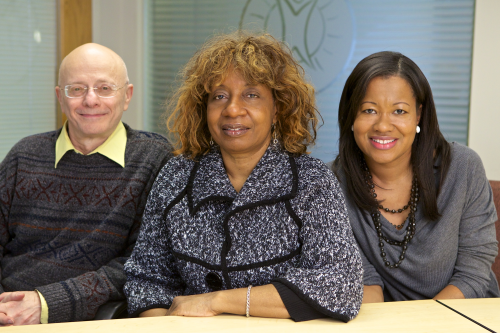May 07, 2014
Chicago researchers study new approach to curb youth violence
Chicago researchers study new approach to curb youth violence
“Teenagers who are exposed to community violence are at an increased risk of becoming frustrated and acting in aggressive ways,” said Robinson, lead researcher for the study. “By teaching coping skills, we hope to open doors for students’ futures, both academically and beyond the walls of the school.”
“Anywhere there is violence, children in the community will see and hear it, and it will affect them deeply,” said Leonard A. Jason, co-researcher and director of DePaul’s Center for Community Research.
The National Institutes for Health funded the study, and researchers will measure changes in the behavior and academic performance of participants. Sharon Lambert, another co-researcher from George Washington University, will help examine how environmental factors, like neighborhood crime and violence, may impact the effectiveness of the program.
Living through violence, breaking the cycle
Violence has been identified as a public health concern for young people throughout the United States, from fights and bullying in schools to shootings and gang activity in neighborhoods. Homicide is the leading cause of death for African-American youth, ages 10-24, according to the Centers for Disease Control and Prevention.
“Often, prevention programs are aimed at younger students, or interventions happen when they are older, after violence has already happened. This new program involves 15 prevention sessions that are timed to help ninth-graders during a pivotal point in their development,” said Jason.
“Some of these students face danger simply walking to school, and some may have lost classmates or loved ones to violence,” said April Timmons, project director for the study.
Jason added, "When students move to high school, they also have the added stress of the school transition, along with all the other day-to-day stressors of adolescence. “We will be able to talk to them about strategies for managing complex and difficult life circumstances,” said Robinson.
Piloted in Chicago for use nationwide
DePaul’s Violence Prevention and Intervention Project, funded by the Eunice Kennedy Shriver National Institute of Child Health and Human Development, will assess as many as 1,600 Chicago students. Some of the students will participate in the new prevention program, and others will receive existing services at the school-based health centers. The researchers will check in with students at multiple times to assess the impact of the sessions.
Robinson said the program is designed to be transportable and easy for teachers and school-based health centers to use. The research team’s next aim will be to disseminate the program to a wide group of educators, and EverThrive Illinois will continue to advocate for school-based health centers to have an expanded role in reducing youth violence. “This new approach is a large-scale collaboration,” Robinson said. “I’m optimistic this preventive intervention will prove effective and can go on to be used as a new tool to curb youth violence.”
###
SOURCES:
LaVome Robinson
lrobinso@depaul.edu
Leonard A. Jason
ljason@depaul.edu

DePaul University is leading a five-year NIH-funded study on preventing violence among urban African-American youth. Principal researchers from the College of Science and Health include Leonard A. Jason, professor of psychology and director of the Center of Community Research (left); LaVome Robinson, professor of psychology; and graduate student April Timmons, project director. (Photo by Jeff Carrion)
